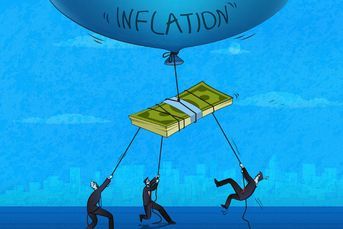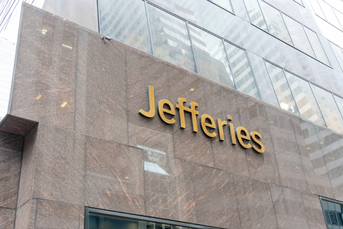Why bad news makes for good investments
If you want to make money in stocks, just ignore every article you read about them (except this…
If you want to make money in stocks, just ignore every article you read about them (except this one, of course).
Or so the message might seem to be if you follow the advice of great value investors. They seek to exploit the perception gap between how they and the media view the world — the so-called headline risk — to profit by buying what everyone else is selling.
In other words, they like scandal stocks.
Take the case of natural gas driller Chesapeake Energy Corp. (CHK). Aside from the enormous damage that plummeting natural gas prices have caused the company, its shares were clobbered in April when news broke it was being sued in U.S. District Court for the Western District of Oklahoma over allegations that chief executive Aubrey McClendon had borrowed more than $1 billion to finance private stakes in wells that the company drilled, a serious conflict of interest.
Chesapeake shares have fallen about 33% over the past 12 months and are down about 8.7% so far this year.
Yet value-oriented manager Staley Cates of the highly regarded Longleaf Partners Fund (LLPFX) has defended his position in the company, which was the largest holding in the $8.1 billion fund as of June 30, at 7.2% of assets.
THE LONG VIEW
At a shareholder meeting in May, he said: “Chesapeake's natural gas assets are arguably the best in this world. Currently, the price of natural gas is so low … that having the best assets in the world doesn't mean a lot to Mr. Market, but long-term, this position is compelling.”
Most value investors tend to be buy-and-hold investors like Mr. Cates.
“One of the best ways to make money is to have the ability to look past a bad headline,” said Stephen Dodson, manager of the Bretton Fund (BRTNX).
“The questions I think through after each negative headline are: Is there something fundamental that permanently impairs the future earnings ability? Or is this just a short-term hit?” Mr. Dodson said.
Mr. Dodson has outperformed 99% of his peers in the midcap-blend category in the past year. His fund has a 36% return, thanks to a concentrated portfolio of 16 stocks, some of which, such as JPMorgan Chase & Co. (JPM), have had significant headline risk.
JPMorgan said May 10 that a trader nicknamed “the London Whale” lost $2 billion on derivatives bets. The stock fell 10% to $36.65 the day after the initial announcement.
Then, as the full extent of the damage became clear — some $5.8 billion in losses — shares dropped another 16% to a 2012 low of $30.74 by June 15.
Meanwhile, Mr. Dodson was buying.
“I came to the conclusion that this was a one-time loss that wasn't going to damage JPMorgan's business,” he said. “It was not something that will cause less people to give it their deposits or affect its ability to generate fee income or make loans.”
Every investor has a different definition of what sort of headlines make them nervous. For Mr. Dodson, it is accounting irregularities — the sort that might lead to the next Enron Corp. disaster.
ACCOUNTING ISSUES
Some managers would argue that accounting issues can be temporary hiccups or honest mistakes.
“It's difficult to assess accounting issues, but if a company has a reasonably strong balance sheet, you can take a chance on it,” said James Potkul, manager of the Bread & Butter Fund (BABFX), which has beaten 90% of peers during the past five years in the large-cap-value category.
“A good example is [garbage disposal and recycling company] Waste Management Inc. (WM). It had an accounting issue years ago, but we knew it was a solid, steady business with a reasonably good balance sheet,” Mr. Potkul said.
“So we bought into it and have held it profitably in our separate accounts for many years,” he said.
By contrast, Mr. Potkul found the behavior of Mr. McClendon at Chesapeake too egregious and sold his 3% position.
“I always understood there was a corporate-governance issue, but I didn't understand the extent until the latest news,” Mr. Potkul said.
The sin also became unforgivable because of the nature of Chesapeake's business and its overleveraged balance sheet.
“Waste Management has a more stable business in an industry it dominates, compared with Chesapeake, which is in the unstable natural gas exploration business and has a massive amount of debt,” Mr. Potkul said.
Learn more about reprints and licensing for this article.








